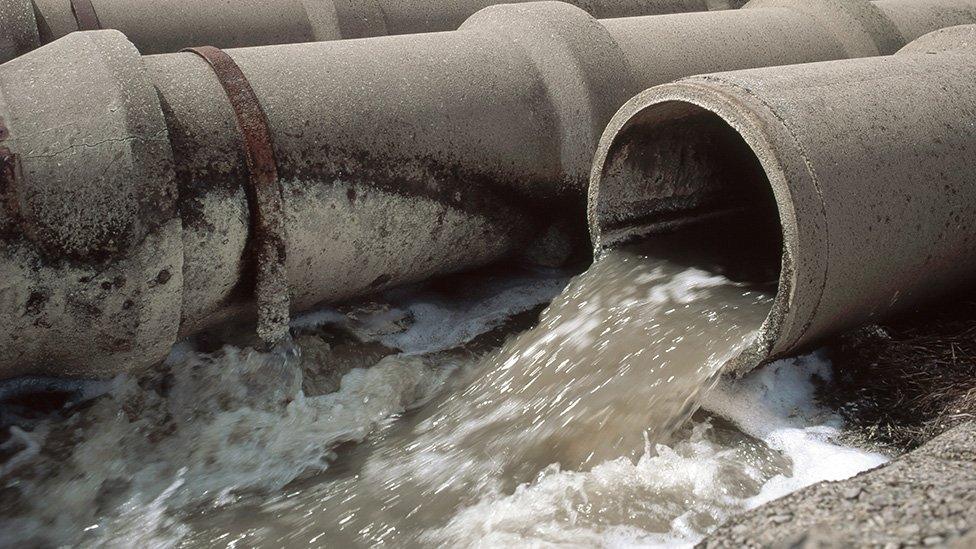Yorkshire Water facing £47m fine over sewage leaks
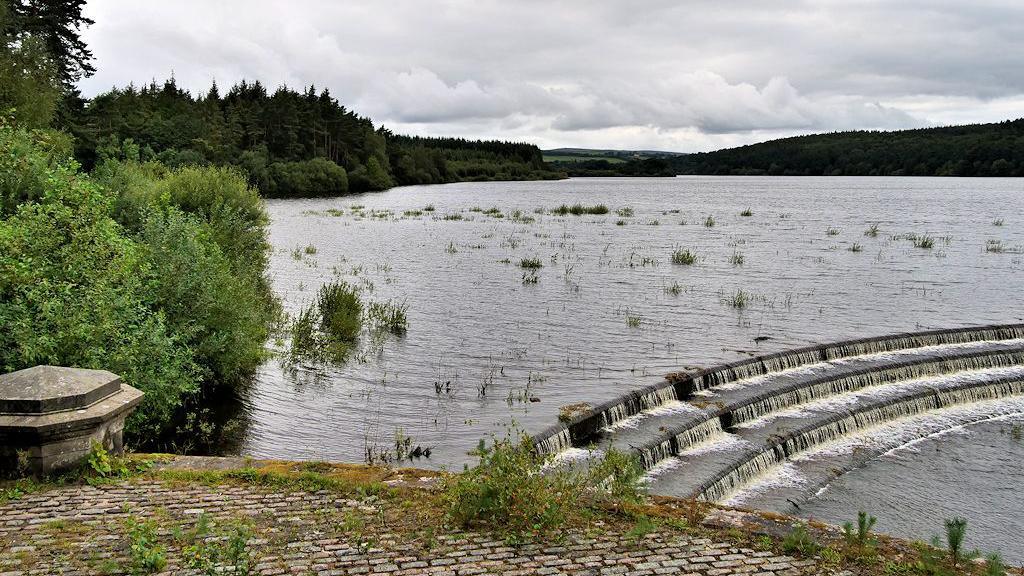
Yorkshire Water said it takes its responsibility to protect the environment seriously
- Published
Yorkshire Water has said it is "disappointed" at Ofwat's plans to fine the company £47m over historic sewage spills.
The company is one of three firms facing sanctions from the industry regulator, alongside Thames Water and Northumbrian Water.
An investigation by Ofwat found that on average Yorkshire Water discharged untreated wastewater into the region's rivers for seven hours a day in 2023, with almost half of its storm overflows found to be in breach of regulations.
A Yorkshire Water spokesperson said the firm took its "responsibility to protect the environment very seriously" and had previously apologised "for not acting quickly enough" as well as announcing a £180m plan to cut discharges from storm overflows by April 2025.
Ofwat's investigation, which began in 2021, looked into whether the three companies had been providing customers with the level of service they are entitled to under the law.
It found they had failed to adequately invest in and maintain their networks, leading to repeated releases of raw sewage into the country’s waterways.
It added that Yorkshire Water had been slow to understand its obligations and was failing to put processes in place to comply with requirements.
The regulator's chief executive David Black said Ofwat had uncovered a "catalogue of failures" by all three water companies.
“Our investigation has shown how they routinely released sewage into our rivers and seas, rather than ensuring that this only happens in exceptional circumstances as the law intends," he said.
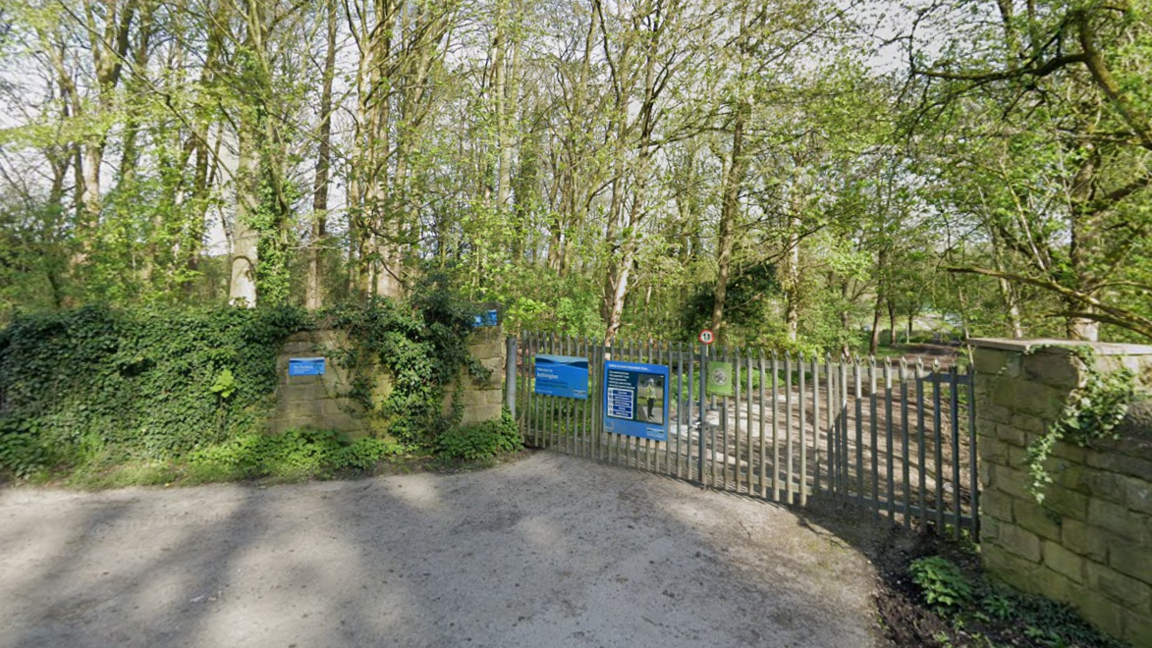
Pool Wastewater Treatment Works released waste water for an average of 19 hours a day in 2023
Responding to Ofwat's investigation Yorkshire Water said: "We and our customers care deeply about river health and we want to provide reassurance that we have already taken considerable action to improve.
"For the past two years we have been industry leading for our wastewater treatment works compliance, we have more robust processes and procedures in place, and we have finished work at 10 storm overflows with 44 on site, and 66 due to start soon as part of our £180m investment programme.
"Our business plan for 2025-2030, which is currently being reviewed by Ofwat, proposes our largest environmental investment of £7.8bn.”

Woolworths Combined Sewers Overflows in York City Centre released waste water for an average of 18 hours a day in 2023
Storm overflows are used to allow excess waste water to escape into rivers or seas to avoid flooding, but are only designed to be used in exceptional circumstances.
However, recent reports suggest water companies across England are using these “relief points” increasingly often.
At one such point at Langthorne Sewage Treatment Works, near Catterick, North Yorkshire, untreated wastewater spillages lasted an average of 20 hours in 2023. 259 spills were reported in 2023.
At Wentworth Sewage Treatment Works, less than five miles from RSPB Dearne Valley, wastewater spillages lasted an average of 19 hours. 198 spills were reported.
According to the Environment Agency, there were 3.6 million hours of spills across England, compared to 1.75 million hours in 2022. In Yorkshire, there was 0.5 million hours of spills in 2023 – making up around 14% of the country’s spills.
Clean water campaigners Surfers Against Sewage said the fines were a win for campaigners, who had been “demanding those in power enforce the letter of the law”.
Chief executive Giles Bristow said: “Today’s fines illustrate the sheer state of disrepair of our broken water industry with nearly half of Yorkshire Waters storm overflows found to be in breach of their permits.
“People demand healthy rivers, lakes and seas and the government must ensure they, and the water sector, delivers it.”
Related topics
- Published6 August 2024
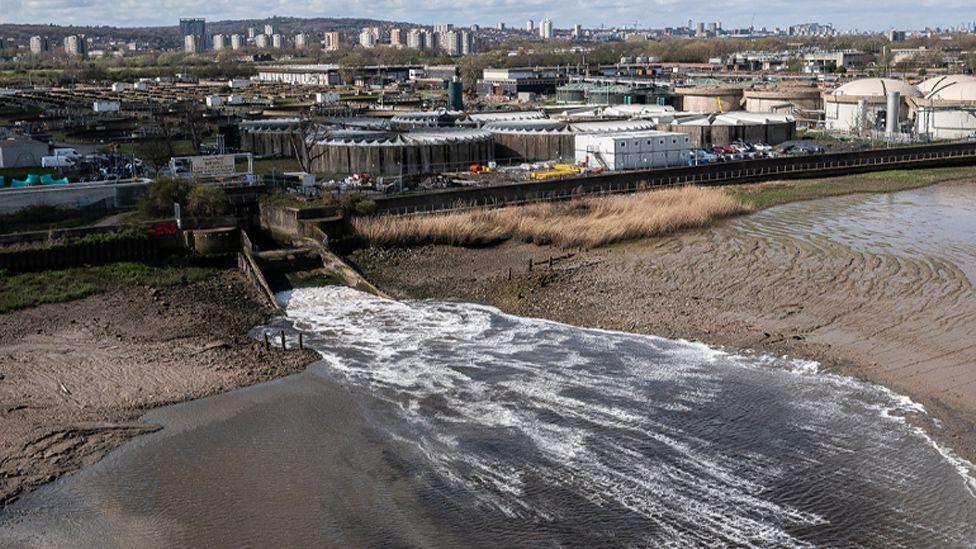
- Published18 May 2023

- Published17 March 2024

- Published16 July 2024
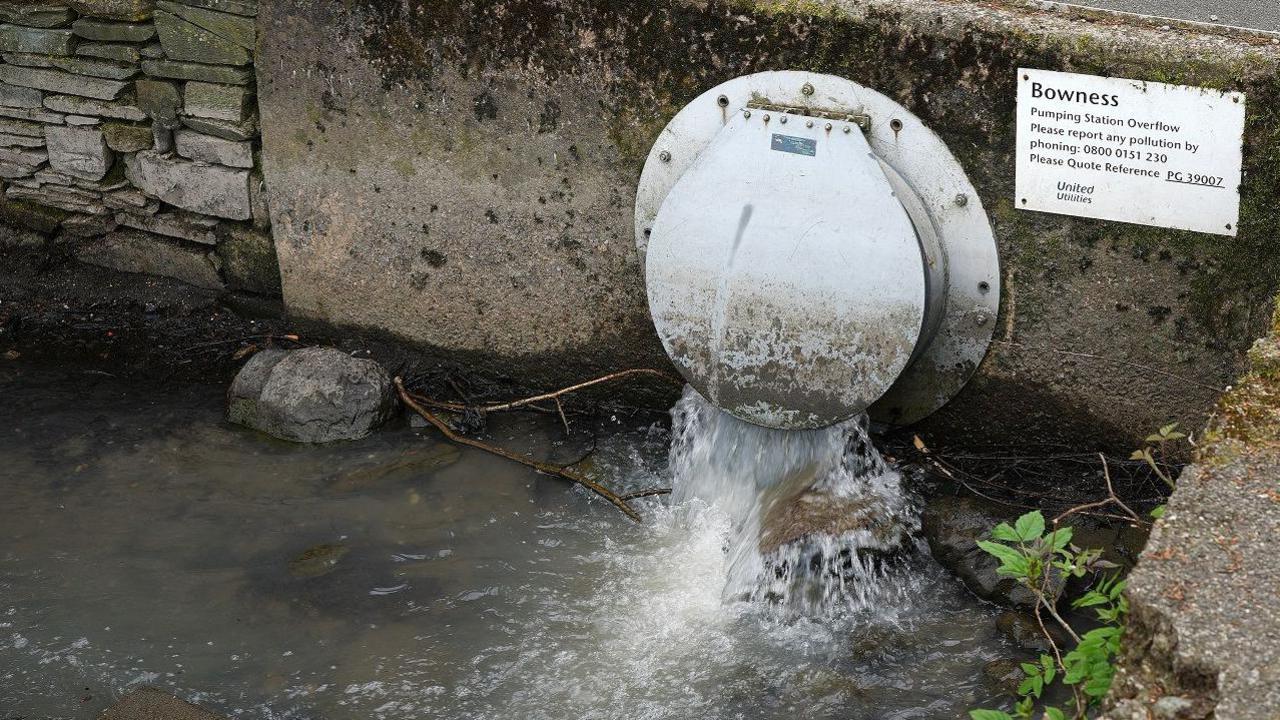
- Published10 April 2024

